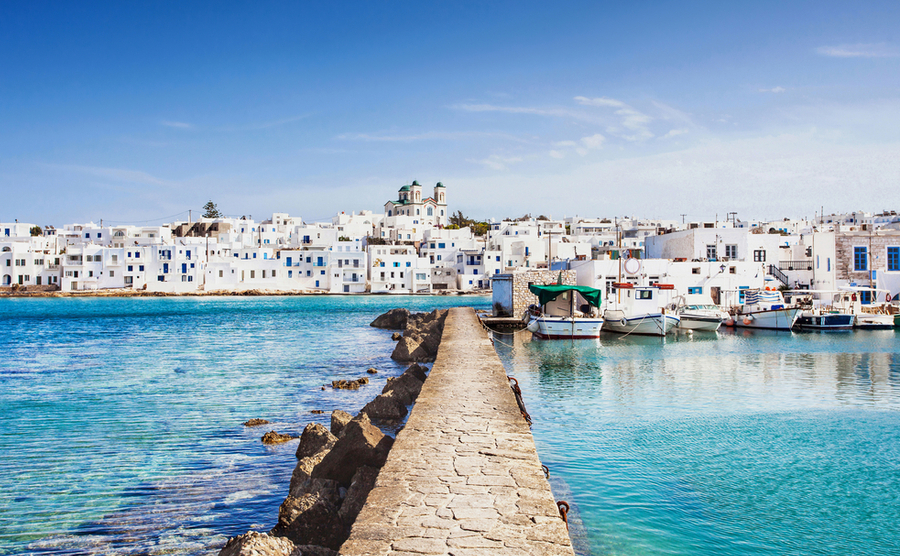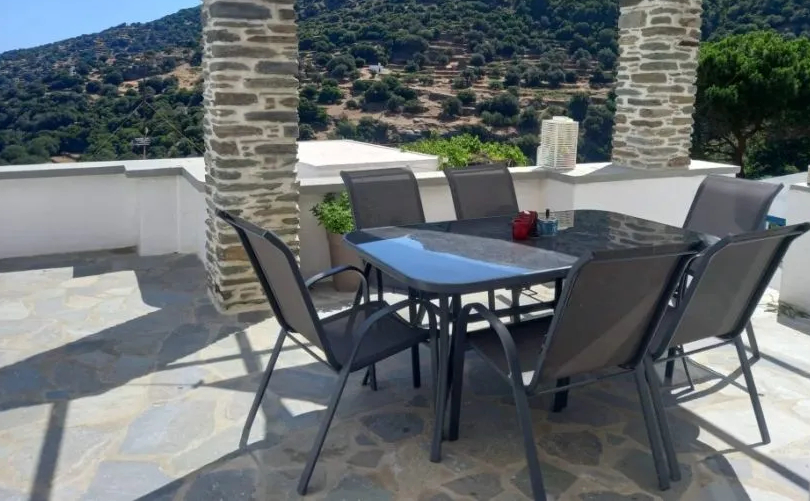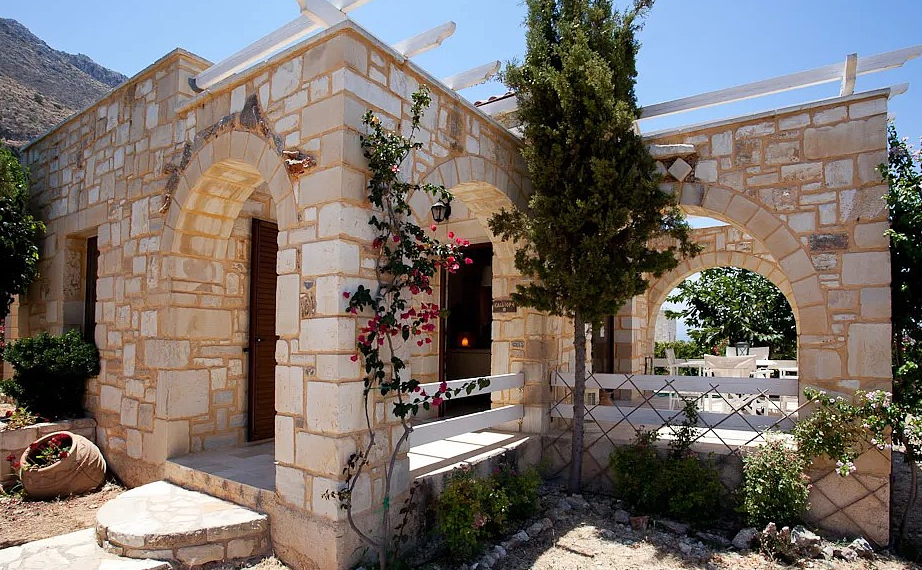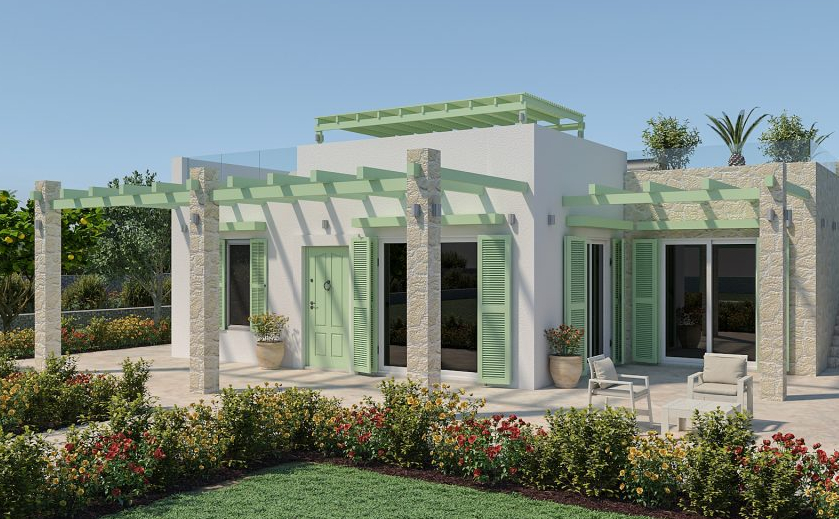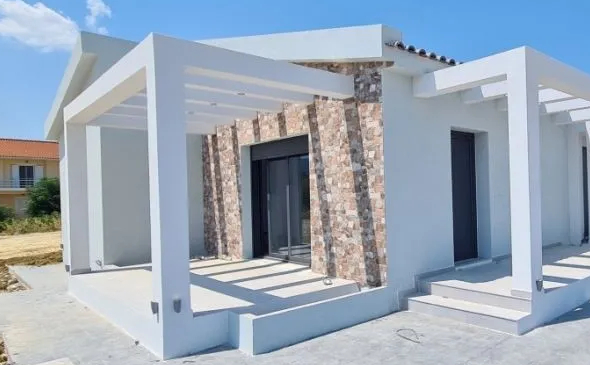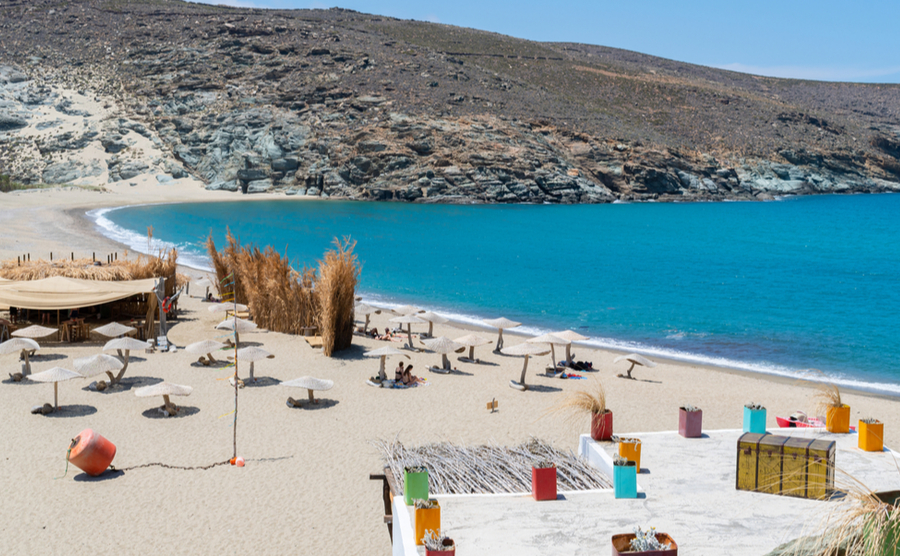Sustainability, eco-friendly, and low energy costs, have become top priorities for house buyers. To own a house in Greece which both respects the environment and saves you money on energy bills, is a win-win for everyone. But which islands are leading the way on sustainability initiatives? And how can you make your house in Greece sustainable and eco-friendly?
Whether you decide to renovate an old house, or buy a plot of land on which to build your dream home, clever house design and energy saving technology can save you thousands on future running costs. With over 3,000 hours of sunshine per year, Greece is a great location to harness the power of the sun. Greek communities and individual home owners are doing just that. We have also included some homes from our property portal that have sustainability and eco-friendliness in mind.
Find homes in Greece via our property portal.
A natural environment worth preserving
The Greek islands are loved for their beautiful natural landscapes, sparkling waters, wild life and fauna. From sea turtles to migratory birds, UNESCO geoparks to world heritage sites, Greece certainly has an environment worth protecting. Both house owners and tourists can do their bit to halt the destruction humans have caused, from wildfires, plastic waste, vehicle pollution etc.
Sustainability Hub
The Greek National Tourism Organisation (GNTO) understands the importance of keeping Greece beautiful, so they have launched a sustainability hub, to highlight the projects that are happening across Greece. They hope that by sharing ideas, many other places across the world will be inspired to take action too. Their website, “Sustainable Greece” also suggests sustainable experiences and holidays in this amazing land.
Which Islands are leading the way?
If you want a house that is built sustainably and is eco-friendly, it helps if the authorities and community around it have the same values. Many of the islands have recognised the need to reduce waste, cut down on the use of plastics, and produce greener energy. Below are some of the sustainable initiatives that have already begun, but many more islands are following their example.
Plastic-Free Paros
The island of Paros is set to become the first single-use-plastic-free and waste-free island in the Mediterranean. Locals and visitors are discouraged from buying drinks in plastic bottles, and to use reusable products. People are also volunteering to be “godparents” of sections of beach, where they collect, sort and audit the rubbish they find.
You will also find groups of expats across Greece that get together to do beach clean-ups. It’s a great way to meet people, while at the same time helping to protect wildlife and the environment. On some beaches they also look out for turtles that may have got caught up in nets or have eaten something plastic.
Electric transport on Astypalaia
The island of Astypalaia has replaced 1,500 engine vehicles with 1,000 electric vehicles. You can also travel around the island using the new ASTYBUS electric bus. Alternatively, you can drive yourself using an electric vehicle sharing app, called astyGO, which includes cars, e-scooters and e-bikes.
Renewable Tilos
Not only is Tilos island part of a huge ecological park and nature reserve, but it’s also the first island in the Mediterranean to be entirely self-sufficient in energy. The Tilos Project is Greece’s first hybrid power station, which produces energy from its very own wind farm and solar power generators. In addition, 80% of Tilos’ rubbish is being recycled.
Sea grass of Andros
Off the coast of Andros there are underwater meadows of swaying sea grass. These Posidonia Meadows are vital for filtering the seawater, limiting coastal erosion and hosting marine life. Plus, they absorb fifteen times more CO2 than a similar sized plot in the Amazon rainforest. Recent initiatives aim to raise awareness about the importance of seagrass, and to discourage yacht owners from destroying them with their anchors.
Free energy community on Crete
In the small town of Arkalochori, on Crete, thirty eight visionaries founded the Minoan Energy Community. Energy is produced by two photovoltaic parks, supplying around 300 members of the Community with free electricity, among which 100 are people on low-incomes or earthquake survivors.
How can I make my house in Greece sustainable?
Many stone houses in Greece were built to last, using materials found locally, such as stone and wood. Durable, quality building materials and sustainable design features are key elements that will ensure your sustainable home will still be standing strong in a hundred years time.
The materials used in the building or renovation should be sourced as locally as possible. By taking advantage of natural light and airflow you will be able to heat the rooms through the glass in winter and cool them at night with vented shutters. If you have a room even partly underground it can be a lovely cool place to retreat to on a hot afternoon.
Good insulation
Good insulation or thick stone walls not only keeps the heat in, they can also help keep it out in the summer. Once you have cooled the rooms overnight, simply close everything up during the day and keeping the windows and walls shaded to help keep the rooms cool. This, will also reduce energy usage, through less need for air-conditioning and electric fans. When you do need to use electric, a renewable energy source is preferable and appliances with a good energy rating.
Follow the sun
Positioning of windows, skylights and solar tubes should allow enough light in, so that you don’t need to keep putting the lights on. However, you don’t want the midday sun beaming in and heating up the house like an oven either. Which is when shutters, window blinds, covered verandas and roof terraces come in useful.
If you hope to install photovoltaic solar panels, make sure the property has a suitable area to put them. A big flat roof is great, as long as it gets the sun for most of the day. Some roofs maybe shaded by trees, other buildings or a mountain. When viewing properties, ask about the orientation of the sun.
Reduce energy consumption
The Energy Performance Certificate (EPC) or EPCs (Energeiako Pistopoiitiko), shows the energy rating of the building, in relation to the estimated consumption of primary energy. Greece, as a member state of the European Union, is subject to certain obligations. One of which is to reduce energy consumption. In Greece, new buildings must meet minimum energy performance requirements (class B).
The national plan for increasing the number of nearly zero-energy buildings was issued in August 2018 and was incorporated into Greek legislation. It defined, that a new building may be characterised as a nearly zero-energy building if it falls at least under energy class A, while an existing building when it falls at least under energy class B+.
Since 2011 it has been obligatory to cover at least part of your hot water needs from solar, thermal or other systems. A Solar hot water system is very inexpensive, and is well worth having.
Furnishing your home
Think long term when furnishing your house in Greece. Plastic chairs that break in the heat and a patio umbrella that only lasts one summer in the wind are not a good buy. Built in outdoor seating lasts longer and second-hand wooden furniture can add a traditional look. We were lucky to buy some traditional Greek café chairs, from a restaurant that had just had a more modern refit. Look out for Antique and Flea markets.
Use energy-efficient appliances
Appliances with high energy ratings might be more expensive, but they can save you a lot of money on your energy bills. Kitchen, laundry, and cooling/ heating appliances can use a lot of electricity. Do you even need a tumble dryer? When air drying is so quick and easy in Greece.
Respect the natural environment.
A new or renovated Greek house should be in harmony with its surroundings and not be a blot on the landscape. Using stone and natural colours will help create a relaxing haven. If you need to clear an area for building, be aware of what you are destroying and the possible erosion the clearance of trees and vegetation may bring. There may also be birds and creatures that have already made the building their home. Some birds are migratory visitors and some animals may be hibernating. Try and leave some cracks and ledges for them too.
Don’t Pollute the Environment
When painting your home, opt for a low VOC paint that is better for your home and the environment. Eco-paints are less toxic to manufacture and will improve the indoor air quality of your home. You should also be careful what beauty and cleaning products you use. When viewing properties always ask where the toilet water goes. It might be going directly into the sea.
Go Off-grid
Most of us like the idea of not having to pay energy and water bills and living off-grid seems to be the perfect answer. When you are used to the luxury of a flushing toilet, electric lights and internet, the reality of having no energy supply can come as an uncomfortable shock. Heading out to the earth closet with a torch in the night isn’t for everyone.
Most of us that have renovated a house in Greece have been without electric and water at some point, while waiting for connection or during a power cut. It makes you really appreciate the little things like, turning on the tap, and water coming out, or flicking on a light switch.
To be off-grid and have an electric supply, involves purchasing a renewable energy source, such as photovoltaic panels or wind turbines. However, the initial outlay for renewable energy does put many people off. We are talking about around €3,500 for 3.5 kilowatts, which is about the minimum you would want in a small house.
However, if you buy one of the cheap set ups, you will need to be more careful with your usage, especially when using more than one appliance at the same time. It’s also preferable to pay extra to get the storage batteries, otherwise when its dark or cloudy you will have no electric.
An Off-grid house in Greece
On the island of Tinos, the owner of a plot of land that is far from a power supply, water, and waste water, decided to build off-grid Ecolodges. These comfortable lodges us as little energy as possible and have a low environmental footprint. They offer peace and relaxation and a healthy environment in touch with nature. It’s a place to walk, relax and potter in the vegetable garden, away from the stresses of modern life.
The lodges are perfectly integrated into the natural environment, and are built with natural stone and wood. However, these traditional materials have been combined with a thermally efficient contemporary design. They also exploited the potential of the plot in terms of orientation, slope and view.
They have used both a photovoltaic system and wind generators, to meet their electricity needs. As there isn’t much rainfall in Greece, it was a challenge to calculate how much water they would need to store, so that it lasted through the dry summer months. They decided to collect rain water, and store it in a 100,000 cistern.
Another big consideration was the black water from toilets. They created a system that uses a combination of filtering, composting and reed beds. The system is explained further on their Eco Lodge website.
In summary
Some of the key points to consider when viewing Greek houses, are its orientation to the sun and whether it has a suitable position for solar panels. Can you shade the windows with shutters, blinds or a covered veranda? Is the building well insulated and can you open windows at either side to get a through breeze. Ask where the tap water comes from, and where waste water goes.
In a time before electricity people naturally built with local stone and wood. They positioned doors, windows and rooms to maximise the use of the wind and sun, to heat and cool their homes. Old Greek stone houses are often a good start to sustainable and eco-friendly living.



